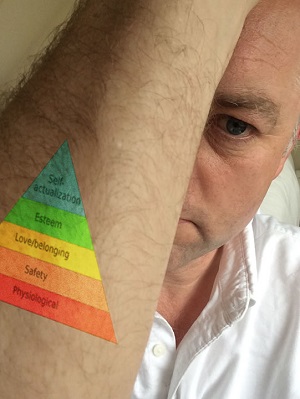
The new brunette: celebrating our love of leisure
Edition number 80; 16 October 2015
The fundamental questions of government policy:
who can be arsed?
This new issue of the Leisure Review has been a long time in the making, for which I can only apologise. It took a while to shake off the post-election ennui and then summer happened. Only the prospect of reporting on the impact of the chancellor’s continuing economic miracle kept the Leisure Review team going through the tough times of longer summer days on the beach and long summer evenings chasing round the park.
A new government policy for sport is imminent and it provides the context (perhaps a dark shadow, a lurking presence) to several of the features in this issue of the Leisure Review. It is most obviously the context for Martyn Allison’s offer of some interesting and in parts challenging advice to the minister for sport; and that’s ‘challenging’ in the sense of both difficult to achieve and rather unpalatable to some tastes. Several of Martyn’s points are what many in the sport, leisure and culture sector would recognise as simple realities, among them some of the suggestions relating to the promotion of mass participation, what national governing bodies for sport are actually best suited to achieving, and the necessity of realistic funding if goals are to be achievable.
These points echo elsewhere in this issue, perhaps most clearly in our interview with John Mills, one of British Cycling’s most senior members of staff and one of sport’s most respected development professionals. British Cycling is an exemplar in many aspects of the business of running, developing and promoting sport but they are still facing issues relating to facilities, volunteers, resources and, of course, funding, many if not all of which will be familiar to even the least celebrated of sporting or cultural organisations.
Both Martyn and John could, and no doubt will, offer the minister for sport the benefit of their extensive experience and expertise but context is everything and the context of this policy debate is set by the subjects discussed at some length in previous editorials: the Active People Survey’s revelation of declining participation numbers in some of our most important activities and the ongoing pursuit of economic recovery via the politics of austerity [see editorials 79 and 78 respectively].
There are some givens in this debate. One is that the interests of public health (and with it the health of the NHS) is served by increased physical activity. Another is that economic circumstances influence behaviours, including the uptake of physical activity. For all the chancellor’s assertions that good times are not just imminent but actually here, this is a reality not widely recognised among the many who are not sufficiently well off to remain unaffected by any economic downturn. Those of us not counted among these wealthy few are likely to be trying to swallow a combination of reduced disposable income, longer working hours, less job security and restricted public services, all served with a side order of government-endorsed social stigma. The wonder is not that fewer people are going swimming but that anyone can find the time, money or pool to go at all.
Who can be arsed? Motivation is an essential aspect of getting people engaged in any health improvement initiative and you do not have to have a tattoo of Maslow’s hierarchy of needs to recognise that when times are tough it gets that much harder to change attitudes and habits. Finding the time, energy and agency to do something that will make you feel good about yourself is not at the top of the list for anyone struggling to make ends meet. If they are facing the prospect their already precarious living standards being further affected by the removal of tax credits, the imposition of new terms and conditions, or their local bus service being cut, the chances are high that there is not much of a list to on which to feature.
The sport, leisure and culture sector is an important factor in the promotion of physical activity and general wellbeing but health is an economic issue and sport, leisure and culture sector is widely associated with the non-essentials of life by those not steeped in its creed. Sport, leisure and culture sector should be central to government policy because if a government cannot get more people engaged in physical activity and their own health in one of the wealthiest economies in the world then that government is doing something fundamentally wrong.
We wish the minister for sport all the best in her efforts to explain this to the prime minister and the chancellor over drinks in whichever publicly subsidised bar or tearoom they choose to discuss it. There is no doubt that these are challenging issues but the suspicion is that her colleagues will not dismiss them because they are difficult but because they are unpalatable. At which point the minister should roll up her sleeve to show them her tattoo.
Jonathan Ives
Editor
letter from the editor
The Leisure Review editorial
